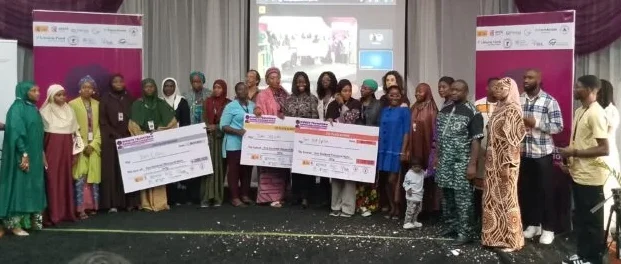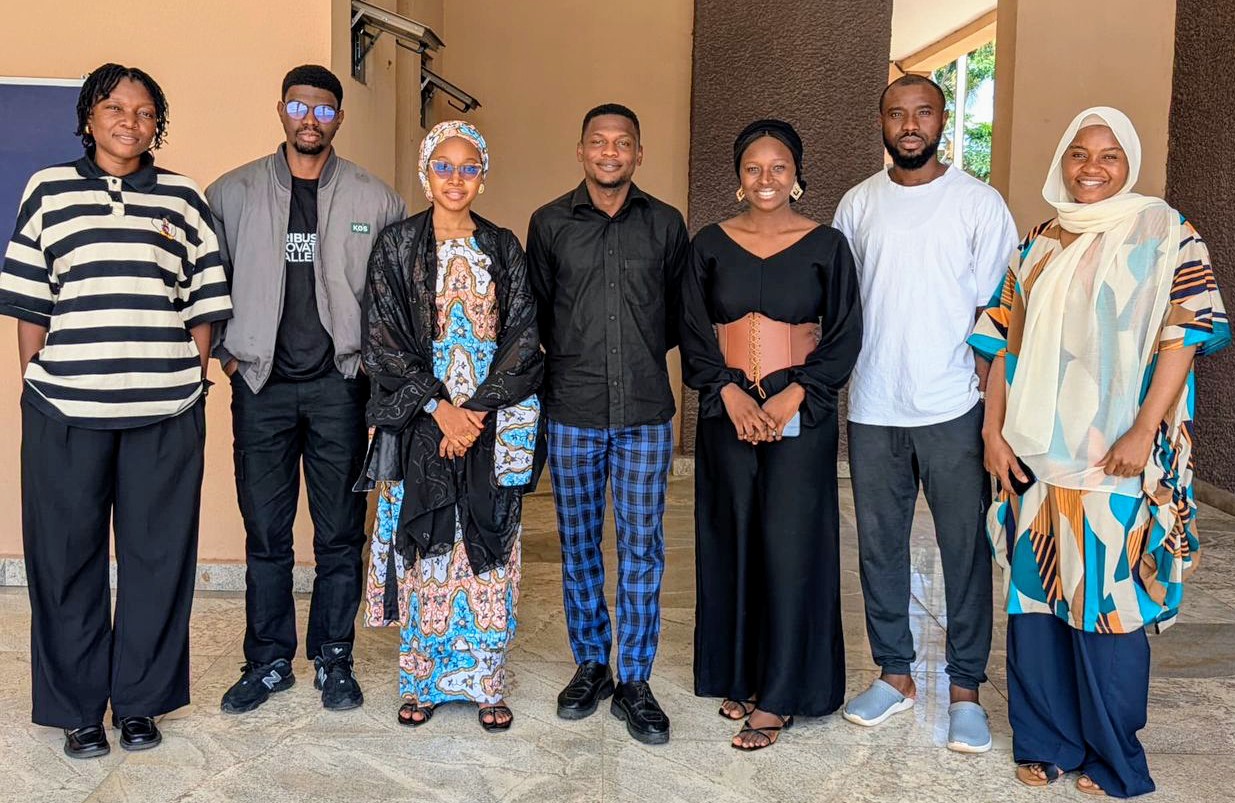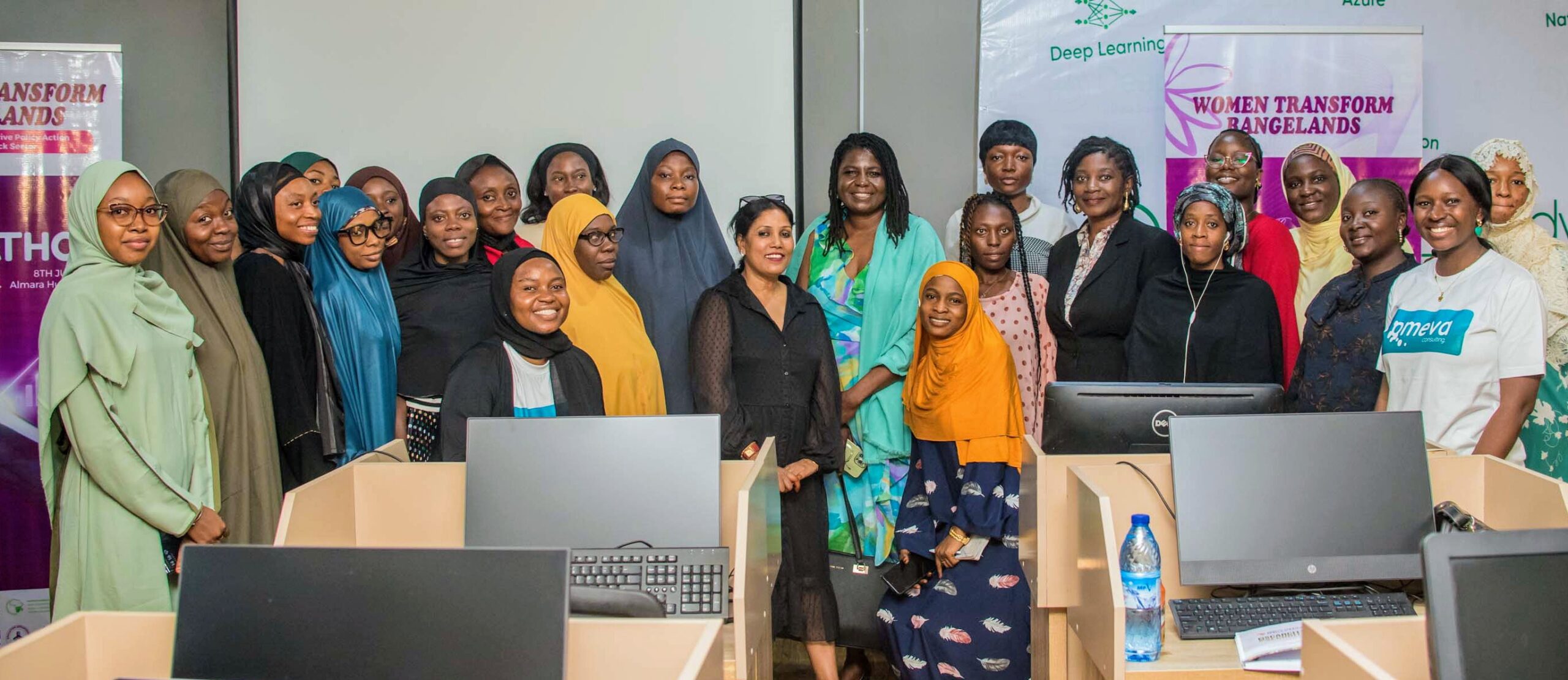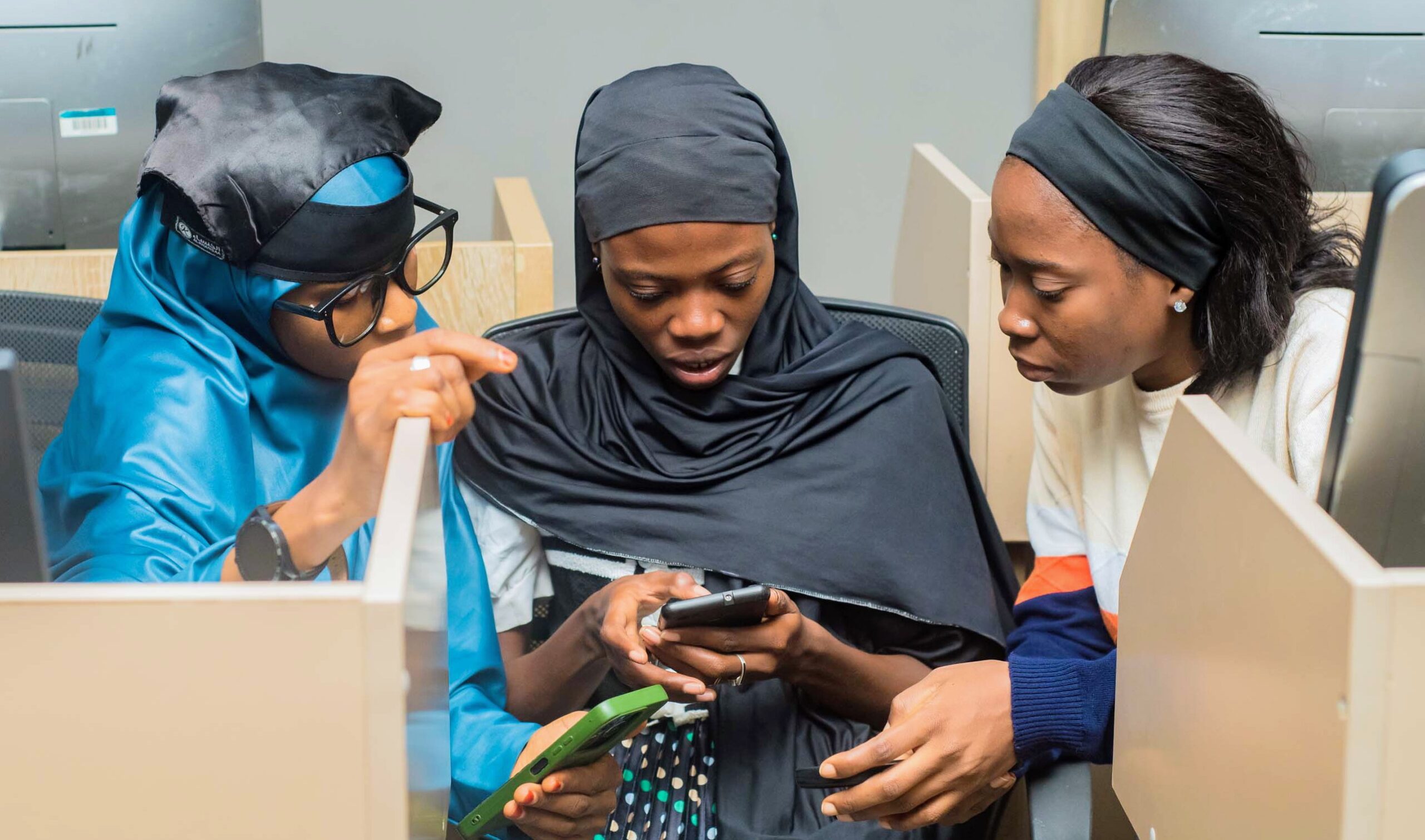Team HEDA wins all-female hackathon on rangeland innovation, data science in Kaduna
By Sani Idris Abdulrahman
Team HEDA has emerged victorious at an all-female Hackathon on Rangeland Innovation and Data Science, designed to position women in rangeland innovation and data science.
Team CODE came 2nd place, while Team HERDATA, clinched 3rd place in the just- concluded event on Tuesday in Kaduna.
The participants worked in teams to generate data-driven insights from an open Rangeland and Pasture Dataset on Kaggle.
With mentor guidance, the participants developed gender-responsive policy action recommendations to transform rangeland management and the livestock sector in Sub-Saharan Africa.
The News Agency of Nigeria (NAN) reports that the event was hosted by Omeva Consulting, a firm promoting the use of data in sustainable agriculture, including the livestock sector across Africa.
The initiative was funded by the Embassy of Spain in Nigeria and the Spanish Cooperation Office, as part of their broader commitment to scientific diplomacy and international collaboration.
The hackathon tagged, ‘Women Transform Rangelands’ and with the theme, “Harnessing Data to Drive Policy Action”, combined virtual and in-person activities, including training, mentorship, expert seminars, and collaborative solution-building.
Speaking at the closing of the event, the Chief Executive Officer (CEO) of the firm, Maria de la Puerta, noted that food production systems were under unprecedented pressure.
Puerta pointed out that data and technology revolution has already transformed agriculture, adding that “in many parts of the world, sensors tell us when and how much to irrigate.
“Satellites and drones help plantation managers monitor fields, plan harvests, and reduce waste.
“However, this revolution has barely touched the livestock sector, despite being responsible for feeding millions, sustaining rural economies, and supporting over half of the world’s land through rangelands.”
She argued that most hackathons chase business ideas or applications, but this one was deliberately focused on policy saying, “we are here to advocate for the use of data in the livestock sector.
“But why a female hackathon, especially since, in many cultures, women are not allowed to own livestock, or at least not the most valued ones, like cows.
“Yes, women may not own cows, but they are expected to feed their families; women are central to the food chain, yet too often left out of the conversation.”
The CEO stressed that women need platforms where they could thrive, be themselves and shine; and where their talent, too often overlooked, would be amplified.
She added that women equally need a platform where new role models could emerge, and where their voices were not just heard, but included into policies and solutions.
The Keynote Speaker, Dr Latifah Abdulkarim, a Strategic Programme and Development Manager, said that lack of data significantly affects livestock production.
Speaking on the topic, “Harnessing Data to Drive Policy Action in the Livestock Sector”, Abdulkarim stressed the need to build data systems that transform livestock systems.
She added that data innovation could bridge raw data into actionable insights. connect technology with local realities, transform data into tools that inform policymakers, empower farmers and improve market efficiencies.
Also, Eva Barta, the Cultural Advisor, Embassy of Spain, said the embassy in Nigeria participated in the all-female hackathon to promote women’s empowerment, sustainable development, and Agenda 2030 priorities.
Barta said that the event showcased Spain’s commitment to inclusive solutions for global challenges.
“The hackathon highlighted the potential of data and digital technologies to improve quality of life and safety, particularly in sensitive topics like pastoralism and rangelands in Nigeria,” she said.
Barta congratulated the participants, thanking partners like Omeva Consulting, ACESDA, DSN, Farm4Trade, and Almara hub for their support in empowering women through data science.
In a goodwill message, the Kaduna State Commissioner for Agriculture, Murtala Dabo, said the hackathon was a timely innovation for the livestock sector.
Dabo, represented by Mr Amwe Akos, Deputy Director, Livestock Service at the ministry, said they were open to partnerships and data sharing, hoping the hackathon’s outcome would inform policy formulation.
The commissioner charged the participants to utilise the generated data-driven solutions for self-development and societal growth, thanking organisers and partners for the event.
Naomi Bitrus-David, the Project Manager of the hackathon, expressed gratitude to participants, partners, highlighting the importance of data, collaboration, and people in driving meaningful work.
She thanked the Embassy of Spain in Nigeria and partners for their support, and jurors, mentors, and volunteers for their ingenuity and commitment.
Bitrus-David believed that the ideas generated would shape conversations, drive implementation, and inspire other women, to mark the beginning of a promising journey.
One of the participants, Hadiza Ismail, a member of Team HEDA, said that she would use her data analytics skills and contribute to solving world problems.
Ismail encouraged other women to be diverse, learn, and take on new challenges.
“In spite of studying mass communication, I developed a passion for data analytics and have been doing projects since then,” she said.
Ismail believed in pushing beyond her comfort zone and engaging in projects that challenge her, which has helped her grow and develop her skills in data analytics.
The highlight of the grand finale was the presentation of gifts and cheques to the winners at the event. (NAN)
Edited by Bashir Rabe Mani







